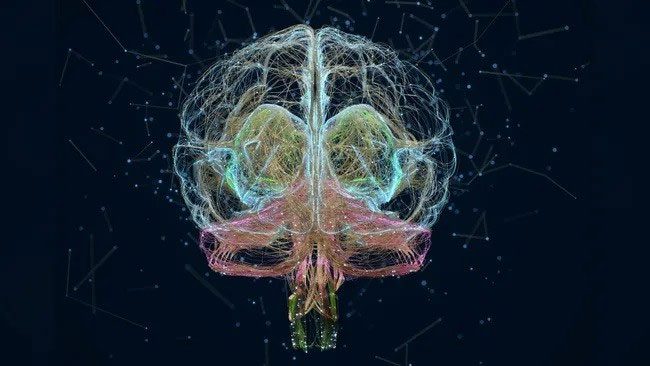The project to implant computers into the human brain, Neuralink, led by billionaire Elon Musk, has the potential to transform the lives of many individuals, but it also raises numerous ethical concerns.
The idea of inserting computers into the human brain may seem like science fiction, but it is becoming a reality through Musk’s company, Neuralink. Academic and commercial groups are experimenting with brain-computer interface (BCI) devices to help individuals with disabilities gain more independence. However, this project is at the center of debates regarding safety, ethics, and neuroscience.
In January 2024, Elon Musk announced that they had implanted their first chip into a human brain.

Neuralink has launched its first human trials but is mired in ethical controversy. (Photo: Andriy Onufriyenko/Moment).
How Does the Human Brain Chip Work?
Neuralink’s device, the N1, which is the size of a coin, is designed to allow patients to perform actions simply by focusing on them, without the need for bodily movement.
Participants in the company’s research undergo surgery to implant the device in the part of the brain that controls movement. The chip records and processes the electrical activity of the human brain, then transmits this data to an external device such as a phone or computer.
The external device “decodes” the patient’s brain activity, learning to associate specific patterns with the patient’s goals, such as moving a computer cursor on a screen. Over time, the software can recognize the patterns of neural activation that occur while the participant is imagining that task, enabling them to execute it.
Neuralink’s current trials focus on helping individuals with paralysis control computers or smartphones. The brain-computer interface devices can also be used to control devices like wheelchairs.
Non-invasive devices placed outside the human head have been used in clinical trials for some time, but they have not received approval from the U.S. Food and Drug Administration (FDA) for commercial development.
There are other brain-computer interface devices similar to Neuralink’s, which are fully implanted and wireless. However, the N1 implant combines multiple technologies into a single device. It can target individual neurons, recording from thousands of locations in the brain and wirelessly recharging a small battery. These are significant advancements that could yield better outcomes.
Why is Neuralink Facing Criticism?
Neuralink received FDA approval for human trials in May 2023. Musk announced the company’s first human trial on social media platform X in January 2024.
However, information about the implant device is scarce, apart from a set of materials aimed at recruiting trial participants.
When scientific research is funded by government agencies or charitable groups, its aim is to promote public welfare. In contrast, Neuralink embodies a model of private equity that is becoming increasingly popular in science, yet they also strive to maximize profits, which may conflict with the best interests of patients.
What Ethical Issues Do Neuralink’s Trials Raise?
When brain-computer interface devices are used to assist patients with disabilities in becoming more independent, such as helping them communicate or move, it can profoundly enhance their quality of life. Particularly, it helps individuals regain a sense of self-determination or autonomy—one of the core principles of medical ethics.
However, well-intentioned medical interventions can lead to unforeseen consequences. With BCIs, scientists and ethicists are particularly concerned about the potential for identity theft, password hacking, and extortion. Depending on how the devices access users’ thoughts, there is also the possibility that autonomy could be manipulated by a third party.
In addition to flaws and privacy risks, scientists are worried about the potential adverse effects of an implanted device like Neuralink, as the components of the device are not easily replaceable after implantation.
Currently, Neuralink’s trials focus on patients with paralysis. However, Elon Musk has stated that his ultimate goal is to help humanity—including healthy individuals—”keep up” with artificial intelligence.




















































